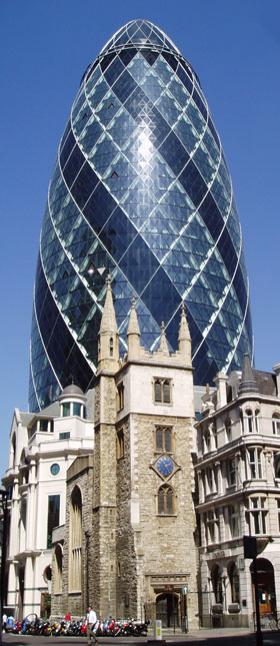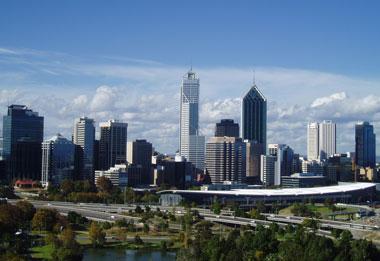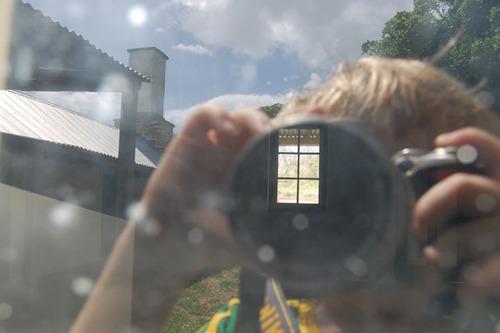This week (or, more honestly, two weeks ago) we’re writing about mornings for 52 Blogs. Read on to find out why I love and hate mornings.
Tag: 52blogs Page 2 of 3
For week eighteen of 52 Blogs the topic is ‘sliding doors’. So, here is the story of how I met my wife, and of all the random twists and turns that had to happen for us to end up finding each other…
Week Fourteen of the 52 Blogs project required us to complete a diary for a selected day and post it up on that day. Here is my diary for Thursday April 4, 2013.
The concept of ‘city’ is vast and hard to define clearly: is it about people? businesses? buildings? There are simplistic interpretations which aren’t very interesting (“it’s where you get the big buildings!”) and there are other viewpoints which would take a whole thesis to cover in only the vaguest detail (“How does a city become a city?” for instance). I’m tempted to wax on about what makes a city a city but there are probably much better pieces of writing out there on the subject than I can muster here.
Having grown up in London (a big city) and then relocated to Perth (a tiny city) I feel quite a personal connection to the concept of city, and to London in particular, so I thought I‘d offer up a more personal view of ‘city’.
The big city
 I said I grew up in London: that’s not strictly true. London’s a huge, sprawling place that expands beyond the city centre and encompasses many suburbs. I grew up about 10km from the city centre which is still close enough to consider myself a city boy. My earlier years were more about discovering my home town (Twickenham, if you’re wondering) but as I grew so did my boundaries: London was no further away than a few stops down the train line and so became part of what I called home.
I said I grew up in London: that’s not strictly true. London’s a huge, sprawling place that expands beyond the city centre and encompasses many suburbs. I grew up about 10km from the city centre which is still close enough to consider myself a city boy. My earlier years were more about discovering my home town (Twickenham, if you’re wondering) but as I grew so did my boundaries: London was no further away than a few stops down the train line and so became part of what I called home.
My awareness of what it must be like to live in more confined environs (a remote town, a small village) was limited to books, films, or occasional visits to far away relatives. The change of scenery (whether real or imagined) was always nice but somewhere at the back of my mind was the recognition that your life was limited to this one place (remember: this is a the perspective of a young boy to whom an endless, empty meadow is possibly one of the most boring things in the universe). Where I lived there were always people, always things happening, and if those things got boring it was never more than a bus or train ride away to the next place where things were happening.
As I got older I always fancied a stint of living right in the city – perhaps an apartment near Tower Bridge, or somewhere within walking distance of the West End (the sort of place where a Hugh Grant movie character might live) – but that was never a realistic option. Living in London is *expensive*. The closest I got to living in the city was Shepherd’s Bush, which is one step away from Notting Hill (oh, hai Hugh!) which is right next to Kensington, which is virtually the city. Sort of.
I’m not going to pretend that Twickenham eventually got too small for me: I did plenty of socialising around Twickenham, Richmond and the general area: I even moved back to Twickenham for a while after getting married. There were great pubs, excellent restaurants, beautiful scenery. However, I also spent many happy days or evenings over the years heading into London to shop, browse, socialise, drink, eat, see films, work. Like any city it has an energy that can be inspiring and infectious. Also, like any city, it’s a natural focal point. I guess in the end living just outside of the city meant that going into the city was still a bit of an adventure. And it never really stopped being an adventure.
The undiscovered country
I vividly remember once finding the idea of moving away from London almost unimaginable. I can’t remember what inspired this thought, but it was probably during my twenties when I was truly starting to discover the city (clearly my feelings on the matter changed). At the time the city represented my friends, my life, a whole world of possibilities.
I’ve often thought about what it would be like to live in the country. While the peace and quiet have a certain appeal I’m almost certain I’d never settle (though I’m pretty sure that certainty has diminished over the years).
I grew up in a flat (or unit, if you like) and was used to having neighbours on all sides, used to having a main road outside, and used to not having an upstairs or downstairs (or even much of a sideways, for that matter). One time I house sat for some relatives who had a ‘proper’ house. It was unnerving. There was no noise from neighbours. There was no constant drone of cars outside. There was a garden directly outside the window (I forgot to mention my flat was on the first floor, so not much chance of anything climbing in the window or back door). On one occasion the phone ‘binged’ – it didn’t ring, just binged – as if someone had picked up the handset upstairs. Of course, there was no one upstairs.
Or was there…?
Needless to say removing the noise and confinement, part and parcel of city living, had an unsettling effect. The irony was that the house was in Clapham: far closer to London than my flat, but it made me realise how accustomed you get to your immediate, familiar environment. I suspect that, having been brought up a city boy, moving to the country (to eat a lot of pee-eaches) would be similarly unnerving.
The little city
 I now live in Perth and I take great, yet ironic, pleasure in dismissing the place as ‘not a real city’. Patronizing, sure, but ironic because it’s absolutely my choice to live here and right now I would not want to live anywhere else. I’m ready for a little city.
I now live in Perth and I take great, yet ironic, pleasure in dismissing the place as ‘not a real city’. Patronizing, sure, but ironic because it’s absolutely my choice to live here and right now I would not want to live anywhere else. I’m ready for a little city.
Samuel Johnson famously said: “… when a man is tired of London he is tired of life” (I can only assume women don’t tire as easily). I’m certainly not tired of life (perhaps tired of not getting enough sleep, exercise or green vegetables) but I reached a natural point before emigrating where I was comfortable that I’d ‘done’ London.
Of course there’s no way you can really ‘do’ London: any major city is so large and ever-changing that you could never exhaust all its possibilities. Even in our last few months there my wife and I took great pleasure in discovering a few corners of the city that neither of us had really explored before. However, I was happy with my experience of London: what was left was places I had little desire to visit or places I’d been to many times before: favourite places to be sure, but often nothing new. It’s all too easy to repeat yourself and stagnate: new surroundings allow us to open our eyes again.
The city…
Perhaps that can be my definition of the city: a place that keeps your eyes open.
You can go to any place, even somewhere you’ve been a thousand times before, and if look at it with ‘new eyes’ you’ll always see something new. I’d walk around my hometown sometimes and make an effort to look up where I’d usually look down, look right where’d I’d usually be distracted by something on my left: every time I would see something I’d never noticed before. Usually you have to make yourself do this: in the city, where everything changes all the time, you often have no choice.

(Full disclaimer: it’s my son in the photo, and he’s also the person taking the photo.)
As a general sci-fi fan I find the concept of parallel dimensions, fractured realities and alternate planes of existence quite compelling. If you’re any sort of a sci-fi fan you’ll almost certainly have encountered the concept: Fringe is one of the most recent examples I can think of but it’s something that’s cropped up numerous times in various Star Trek episodes.
This photo doesn’t quite give us any alternative dimensions (that we know of), but it does fracture the visual plane quite a bit. It also shows us a viewpoint that would be next to impossible to see with just our eyes thanks to the various reflections captured. Photographs where you can see the photographer are, inevitably, a little bit meta but in those shots the photographer is typically photographing themselves. Here we have a case of an accidental selfie: what is actually being photographed is shown, appropriately enough, within the lens of the camera (although I’m not sure if it’s being reflected by the lens or simply by the window in front of the camera) but it’s now one of multiple subjects. In this single photo we can see the camera capturing both its subject and object.
Linguistically speaking I think the camera/photographer should be the subject and the house the object… and yet we typically say that a photographer photographs a subject. Anyway…
The photograph not only shows us simultaneously what is in front and behind the photographer, but also both an interior and exterior. Normally you could achieve this by photographing a window from inside the house: the outer edges (or frame) of the photo would show the interior while the exterior would be confined within that frame. Here we have the opposite: the exterior is the frame, reflected in the glass, and the interior is most clearly seen within the camera lens (and through the glass to a lesser extent). Intriguingly we can also see a second exterior within the window frame in the middle of the photo.
So, in a typical photo you’d see a single plane: whatever’s in front of the camera. In this photo we have, by my count, at least five planes. Starting from the rearmost we have:
- The exterior (trees, sky, the outside of the building – all behind the photographer)
- The photographer (and camera)
- The window directly in front of the camera
- The interior (what you might think of as the intended subject)
- A second exterior seen through the window
All that from one photo. Beats 3D anyday 😉
Some of you Doctor Who fans might remember various attempts to explain why the TARDIS is bigger on the inside than the outside. One involved holding the larger of two boxes further away so it would appear to fit inside a smaller box (boxes; not cows…). Another one suggested that a large building could appear to fit inside a TV set simply by showing it on the screen. All optical illusions effectively, but used to explain physical impossibilities.
Is your head hurting yet?
Forever, in the way that most of us use the word, is a relative term. Sure, strictly speaking it means eternity, a span of time that has no end (and therefore can’t really be a span, since a span has bounds). How do most of us use it though?
Oh, it’s taking forever to get to the end of this queue!
It feels like forever until we get to go on holiday!
That Michael Bay slow motion shot went on forever…
It works equally for things you’re not looking forward to and things you can’t wait for. A much anticipated event will seem like it’s never going to happen, like it’s an insurmountable distance into the future. And then suddenly it’s right there. Likewise, something you’re really dreading will take an eternity to happen, maximising the amount of time you have to get properly nervous, ruining the rest of your life until – yes – suddenly it’s just one sleepless night away.
Then you look back on these stretches of time and think how fast it all went. What happened to last year? What was I doing in the three months between x and y? How long, really, did November Rain go on for?
Of course, we use forever in this relative way because none of us have the ability to truly understand what forever means, what it would be like. We simply can’t use forever in its true sense because, like infinite, it has no literal meaning that we can apply to our own experience.
… and ever
But what if we could actually experience forever? What if we could live forever? We’re all afraid of death so the idea of never dying has immediate appeal. Don’t you think it would suck though? Imagine living for a few hundred years: you’d see some big changes in society; possibly a war or two; lots of death (and birth) Imagine living for a few thousand years: you’d likely see a few civilisations come and go; maybe some major natural disasters or other significant global changes. What would you do for the rest of time? Read every book ever written? See how many times you could walk around the planet?
That’s not even a fraction of forever. Forever would involve seeing the earth created, the sun dying, whole galaxies in motion. Where would you live? Would you float aimlessly in space until you got trapped in orbit by another planet, waiting millenia for that planet to die so you could be set free once again?
I think Anne Rice had it right with her vampires. For the most part, far from embracing their immortality her vampires would be driven to despair or insanity. If they didn’t destroy themselves they would go into long periods of hibernation, unable to cope with the constant process of change combined with their own inertia.
Whoa – this post got a whole lot more downbeat than I’d anticipated. So, who better to play us out than Queen at their most sombre 😉

